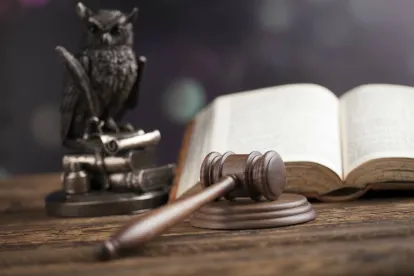The story behind the Trinity Industries False Claims Act (FCA) litigation is one that is becoming too familiar for companies that do business with federal and state governments. Luckily, that story now has some silver lining, after the Fifth Circuit recently overturned a massive $663 million jury verdictagainst the company.
The case came about on the theory that Trinity failed to disclose to federal highway regulators changes made to its guardrail design in 2005. The problem with this theory was that regulators had already tested Trinity’s modified guardrail design and made payments for such guardrails. Moreover, after presented with a PowerPoint presentation by the relator (colloquially referred as a “whistleblower”), highway regulators investigated Trinity, and decided to continue paying for the guardrails notwithstanding the relator’s allegations. A jury from Marshall, Texas found in the relator’s favor. It rendered a verdict that, once trebled and subjected to additional monetary penalties, totaled $663 million, which was among the largest in the FCA’s history.
In overturning the verdict, the Fifth Circuit reinforced the Supreme Court’s recent decision in Universal Health Services, Inc. v. United States ex rel. Escobar, 136 S. Ct. 1989 (2016) (Escobar). There, the Supreme Court held that the implied certification theory is a valid basis of liability under the False Claims Act, but only if the alleged false certification was material to the government’s decision to pay. Importantly for the purposes of the Trinity litigation, the Supreme Court explained,
[I]f the Government pays a particular claim in full despite its actual knowledge that certain requirements were violated, that is very strong evidence that those requirements are not material. Or, if the Government regularly pays a particular type of claim in full despite actual knowledge that certain requirements were violated, and has signaled no change in position, that is strong evidence that the requirements are not material.
Escobar, 136 S. Ct. at 2003-04.
Throughout the decision, the Fifth Circuit reaffirmed the notion that the False Claims Act is not a garden variety regulatory enforcement statute—it is an anti-fraud statute and should be treated as such. Some of the decision’s “greatest hits” include the following:
-
Questioning the “falsity” aspect of the jury’s verdict, the court found “the regulations as written accept that engineers need not disclose changes where, in their good engineering judgment, they deem further testing unnecessary. Disagreement over the quality of that judgment is not the stuff of fraud.” Slip. Op. at 17 (emphasis added).
-
Noting that a government’s decision to pay despite alleged violations that could result in potential loss of life, the court noted “[w]here violations of the ‘certain requirements’ described by Escobar involve potential for horrific loss of life and limb, the government has strong incentives to reject nonconforming products, and Escobar’s cautions have particular bite when deployed to decisions as here.” Id. at 29.
-
Finding that the knowledge to be gauged is not what was disclosed to the government, but instead what the government actually knew, the court explained “the relevant inquiry is not what Trinity disclosed, but what FHWA knew at the time it issued the June 17, 2014 memorandum, no matter the source.” Id. at 36 (emphasis added). “Even if Trinity deliberately withheld information from FHWA, it does not mean that the government’s decision that the [guardrails] remained eligible for reimbursement was the product of ignorance—[the Relator’s] PowerPoint presentation and the allegations in his FCA suit informed FHWA of the 2005 changes. And still FHWA paid because it was not persuaded by the allegations.” Id.(emphasis added).
-
Observing the significance of the government’s decision to not intervene in the case or otherwise produce officials to testify as a suggestion of the alleged violations’ immateriality, the court wrote “The government has never been persuaded that it has been defrauded. It so advised [the Relator] after his repeated meetings disclosing the changes in the product he says was wreaking havoc on America’s highways, leaving him to file his own suit as was his statutory right. Following discovery, as he made his eve-of-trial Touhy request that the government produce officials to testify, the Department of Justice declined, once again sending the message that the government did not believe itself to be a victim of any fraud, a position from which it has not to this day retreated.” Id. at 39 (emphasis added).
-
Explaining the Federal Highway Administration’s role in all of this, the court explained that the agency “[i]n turning back [the Relator’s] views and proofs, it balances the federal fisc, motorist safety, and other factors across the spectrum of myriad presentations to disclaim victim status. Such decision making is policy making, not the task of a seven person jury—such a result confounds the premise of qui tam actions: that the government was the victim.” Id.(emphasis added).
In short, this was a very favorable decision and follows a series of other decisions in which courts have found that the government’s decision to pay a claim (or not) in spite of its knowledge of an alleged violation is strong evidence of that the alleged violation is not material.[1] It is also notable because it demonstrates that appellate courts will not let a plaintiff-friendly jurisdiction to unfairly wreck a defendant’s business solely because the case was tried to a jury. Indeed, in rejecting the jury’s verdict, the Fifth Circuit found that as “revered as is the jury in its resolution of historical fact, its determination of materiality cannot defy the contrary decision of the government, here said to be the victim, absent some reason to doubt the government’s decision as genuine.” Id. at 40.
[1] United States ex rel. Kelly v. Serco, Inc., 846 F.3d 325 (9th Cir. 2017) (noting that the government accepted Serco’s reports despite their noncompliance with the relevant guidelines and thus the monthly reports were not material); United States ex rel. McBride v. Halliburton Co., 848 F.3d 1027 (D.C. Cir. 2017) (noting that there was strong evidence that the requirements allegedly violated were not material because that the Defense Contract Audit Agency investigated the relator’s allegations and did not disallow any charged costs); United States ex rel. Petratos v. Genentech, Inc., 855 F.3d 481 (3d Cir. 2017) (ruling that the relator did not sufficiently plead materiality because the FDA did not enforce its adverse-event reporting rules nor require the drug, Avastin, parent company to change the drug’s label after becoming aware of the relator’s allegations); Abbott v. BP Expl. & Petroleum, Inc., 851 F.3d 384 (5th Cir. 2017) (noting that the Department of the Interior allowed BP to continue drilling after a substantial investigation into the plaintiff’s allegations of requirements violations and thus the Department’s decision represents strong evidence that the requirements were not material); United States ex rel. Escobar v. Universal Servs., Inc., 842 F.3d 103 (1st Cir. 2016) (holding that an agency’s decision to pay a contract in full despite actual knowledge that requirements were violated is very strong evidence against the materiality of those requirements); D’Agostino v. ev3, Inc., 845 F.3d 1 (1st Cir. 2016) (noting that the FDA did not withdraw its approval for a device in the six years following the relator’s allegations which casts serious doubt on materiality of the fraudulent representations); United States v. Sanford-Brown Ltd., 840 F.3d 445 (7th Cir. 2016) (emphasizing that the subsidizing agency and other federal agencies had examined the for-profit higher education enterprise multiple times and concluded that neither administrative penalties nor termination were warranted and therefore the fraudulent representation was not material). But see United States ex rel. Campie v. Gilead Sciences, Inc., 862 F.3d 890 (9th Cir. 2017) (holding that questions of materiality remained even when the FDA had continued to pay for the drug).



 />i
/>i

